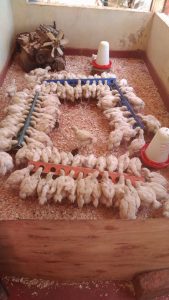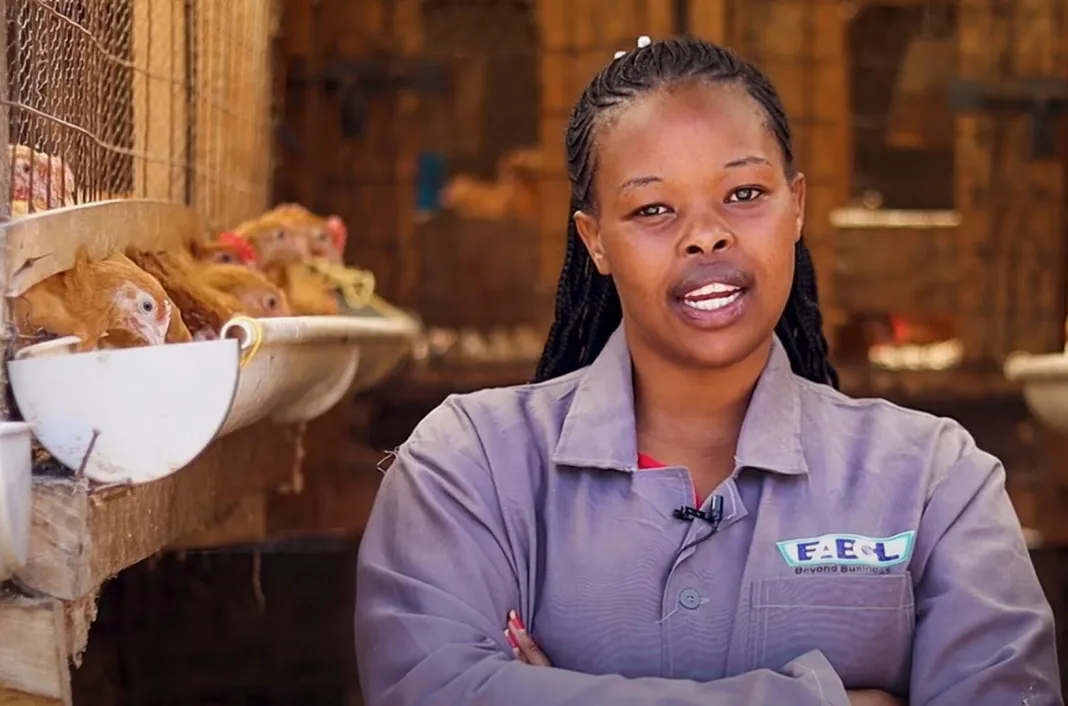[dropcap]A[/dropcap]fter graduating with a degree in community development from Egerton University, Imelda Akinyi started poultry farming in 2015 instead of looking for a salaried job.
With capital of Ksh50,000, she constructed a house and bought 50 chicks at Ksh100 each and some feeds.
Hardly two years later, she has grown to over 400 broilers. The main winner for Akinyi, 24, is focusing on broilers which found ready market on the Western border of Kenya and Uganda.
The other trick, she says, is being there for her flock: she monitors every moment of the birds by herself.
Akinyi wakes up early every morning to clean the chicken house, fill up the water troughs and apply treatment where needed.
See Also: Teenager who runs poultry farm in slums
She appreciates the fact that she has been able to keep a track record of 100% survival since she began the business. She attributes this to the personal care and keenness in the daily lives of her poultry farming.

She makes constant checks to the extent of sometimes going without sleep – or spending the night with them – to just keep watch and ensure all of chicks and chickens are in good health.
This way, she can easily detect flu, the biggest threat in poultry farming, at an early stage and, and any other threats. She has also kept updated firm records, which show every incident and advancements in the growth of her birds.
Her market is majorly hotels within Busia town, but the business has been lifted in large part by friends and relatives. With the Western Kenya community taking unprecedented pride in the poultry delicacy, market is none of Imelda’s worries.
Akinyi began humbly, first selling to neighbours and relatives, but with production growing, she had to tap in the equally growing hospitality industry in the county headquarter.
In December last year, she sold 300 pieces at Sh700 each, scoring her highest profit margin. Broilers feed a lot and so market has to be organised to dispose of the mature ones on time after three to four months.
NEXT: Bungoma County set start exporting chickens
“I encourage every young person out there to go do everything by themselves. That way, we shall have a good life and we shall make Kenya a better place. Especially for us ladies,” she says.
The challenge for Akinyi is pricing. Being on the border, Ugandans with access to cheaper feeds and medication pose strong competition.
The bird flu that hit Uganda flu in January and even some parts Busia did not deter her. It is from this business venture she is supporting her siblings including paying school fees for her two sisters, one in High School and the other in college, easing the strain on her single mother family that has stood firmly together after the death of the father way back in 2007.
She plans to introduce layers to meet the growing demand for eggs. Currently an egg goes for between Ksh10 and Ksh13.













Leave a comment